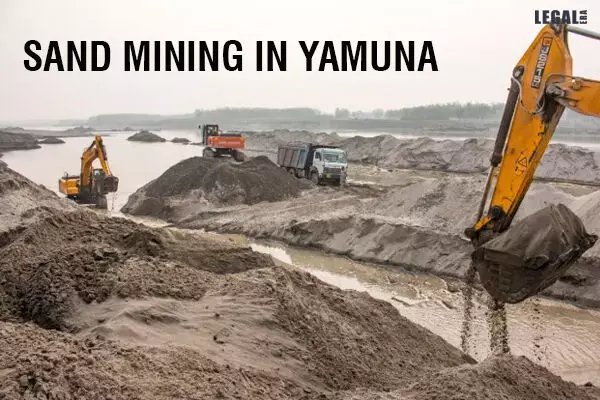- Home
- News
- Articles+
- Aerospace
- AI
- Agriculture
- Alternate Dispute Resolution
- Arbitration & Mediation
- Banking and Finance
- Bankruptcy
- Book Review
- Bribery & Corruption
- Commercial Litigation
- Competition Law
- Conference Reports
- Consumer Products
- Contract
- Corporate Governance
- Corporate Law
- Covid-19
- Cryptocurrency
- Cybersecurity
- Data Protection
- Defence
- Digital Economy
- E-commerce
- Employment Law
- Energy and Natural Resources
- Entertainment and Sports Law
- Environmental Law
- ESG
- FDI
- Food and Beverage
- Gaming
- Health Care
- IBC Diaries
- In Focus
- Inclusion & Diversity
- Insurance Law
- Intellectual Property
- International Law
- IP & Tech Era
- Know the Law
- Labour Laws
- Law & Policy and Regulation
- Litigation
- Litigation Funding
- Manufacturing
- Mergers & Acquisitions
- NFTs
- Privacy
- Private Equity
- Project Finance
- Real Estate
- Risk and Compliance
- Student Corner
- Take On Board
- Tax
- Technology Media and Telecom
- Tributes
- Viewpoint
- Zoom In
- Law Firms
- In-House
- Rankings
- E-Magazine
- Legal Era TV
- Events
- News
- Articles
- Aerospace
- AI
- Agriculture
- Alternate Dispute Resolution
- Arbitration & Mediation
- Banking and Finance
- Bankruptcy
- Book Review
- Bribery & Corruption
- Commercial Litigation
- Competition Law
- Conference Reports
- Consumer Products
- Contract
- Corporate Governance
- Corporate Law
- Covid-19
- Cryptocurrency
- Cybersecurity
- Data Protection
- Defence
- Digital Economy
- E-commerce
- Employment Law
- Energy and Natural Resources
- Entertainment and Sports Law
- Environmental Law
- ESG
- FDI
- Food and Beverage
- Gaming
- Health Care
- IBC Diaries
- In Focus
- Inclusion & Diversity
- Insurance Law
- Intellectual Property
- International Law
- IP & Tech Era
- Know the Law
- Labour Laws
- Law & Policy and Regulation
- Litigation
- Litigation Funding
- Manufacturing
- Mergers & Acquisitions
- NFTs
- Privacy
- Private Equity
- Project Finance
- Real Estate
- Risk and Compliance
- Student Corner
- Take On Board
- Tax
- Technology Media and Telecom
- Tributes
- Viewpoint
- Zoom In
- Law Firms
- In-House
- Rankings
- E-Magazine
- Legal Era TV
- Events
NGT directs Magistrates of Prayagraj and Kaushambi to act against illegal sand mining in Yamuna

NGT directs Magistrates of Prayagraj and Kaushambi to act against illegal sand mining in Yamuna
It was hearing the application raising grievances against unlawful activities in the riverbed
The Principal Bench of the National Green Tribunal (NGT) has directed the Magistrates of the Prayagraj and Kaushambi districts in Uttar Pradesh to take action against the alleged illegal mining in the riverbed of Yamuna.
The bench comprising Justice Adarsh Kumar Goel (chairperson), Justice Sudhir Agarwal (judicial member), and Dr. A Senthil Vel (expert member) stated, “In absence of individual violators being a party, we are of the opinion that appropriate course will be to direct the district magistrates of Prayagraj and Kaushambi to look into the matter and take action as per the law in the light of earlier directions of the tribunal.”
NGT was hearing the application that raised grievances against illegal sand mining in the riverbed and within the stream of Yamuna in the Prayagraj and Kaushambi districts.
It stated that mining was being carried out with the help of heavy machines and using over 1,000 boats at various locations, including Pahuwa, Pratappur, Nevadiya, Amiliya, Masiyari, Fulwa, Bisona, Asrawal, Manpur, Bhampur, Mishrpur, Nagawar, Gadispur, Bhikhana, Bebar, Palpur, Vidyapeeth, Majhiyari, Baswar, Bhilor, Nanda Ka Purva, and Saidpur.
It further informed that over 400-500 overloaded trucks plied daily 24x7, even though the approval was only for 125 trucks.
The applicant highlighted that the tribunal had already taken up the matter in the Atul Singh Chauhan vs Ministry of Environment and Forests & Climate Change & Ors case. The case was disposed of vide the March 2021 order in terms of recommendations of the Oversight Committee.
The applicant alleged that despite the tribunal’s orders, the violations were continuing.
However, in absence of individual violators, the tribunal disposed of the application and considered the appropriate course of action would be to direct the district magistrates of the regions to look into the matter and take action as per the law.


